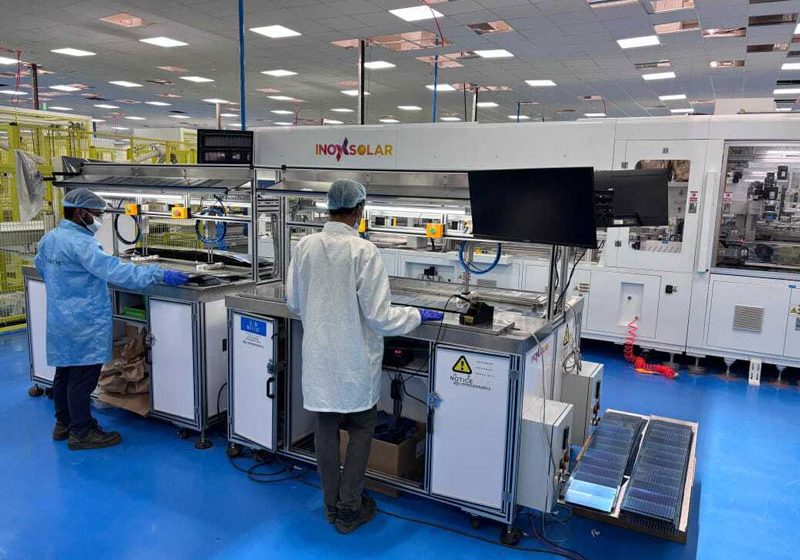A new CII-PwC report urges policy clarity, streamlined approvals, and affordable financing to scale India’s renewable energy manufacturing. With global competition intensifying, strategic capital access could define India’s leadership in the green transition.
India’s ambition to become a global hub for renewable energy (RE) manufacturing is gaining momentum, but its success hinges on access to low-cost, long-term financing. According to Manufacturing for India and the World, a joint report by the apex industry chamber Confederation of Indian Industry (CII) and advisory PwC, affordable capital is essential to scale domestic production of solar modules, wind turbine components, batteries, electrolysers, and transmission equipment.
Released at the 6th International Energy Conference and Exhibition 2025, the report marks 11 years of Make in India and highlights the country’s growing capabilities across clean energy technologies.
“Investor confidence in environmentally responsible business practices is growing, further strengthening India’s push towards clean energy manufacturing,” the report notes.
To sustain this momentum, the study recommends a stable, long-term policy roadmap to de-risk capital-intensive investments. It also calls for expanding public-private partnerships to combine private sector efficiency with public oversight, and for upgrading Bureau of Indian Standards (BIS) certification to global standards to improve export competitiveness.
The report emphasises the need to strengthen transmission infrastructure and integrate smart grid technologies to support large-scale RE deployment. It advocates expanding R&D centres and skill development programmes to build a robust talent pipeline across the value chain.
“India must now transition from technology adoption to innovation, supported by industry–academia collaboration,” the report observes.
Multiple factors are driving India’s green manufacturing momentum, including international regulatory shifts, evolving customer expectations, and the increased flow of climate-focused capital. Indian industries are aligning with global sustainability frameworks to remain competitive in a rapidly transforming economy.
By leveraging its inherent strengths and implementing targeted actions, India can address domestic energy challenges, accelerate the global transition to sustainable energy, and establish itself as a leading player in the clean energy landscape. Or, as the report concludes, “Despite growing global competition, India has continued its pursuit of becoming a clean energy manufacturing hub.”


